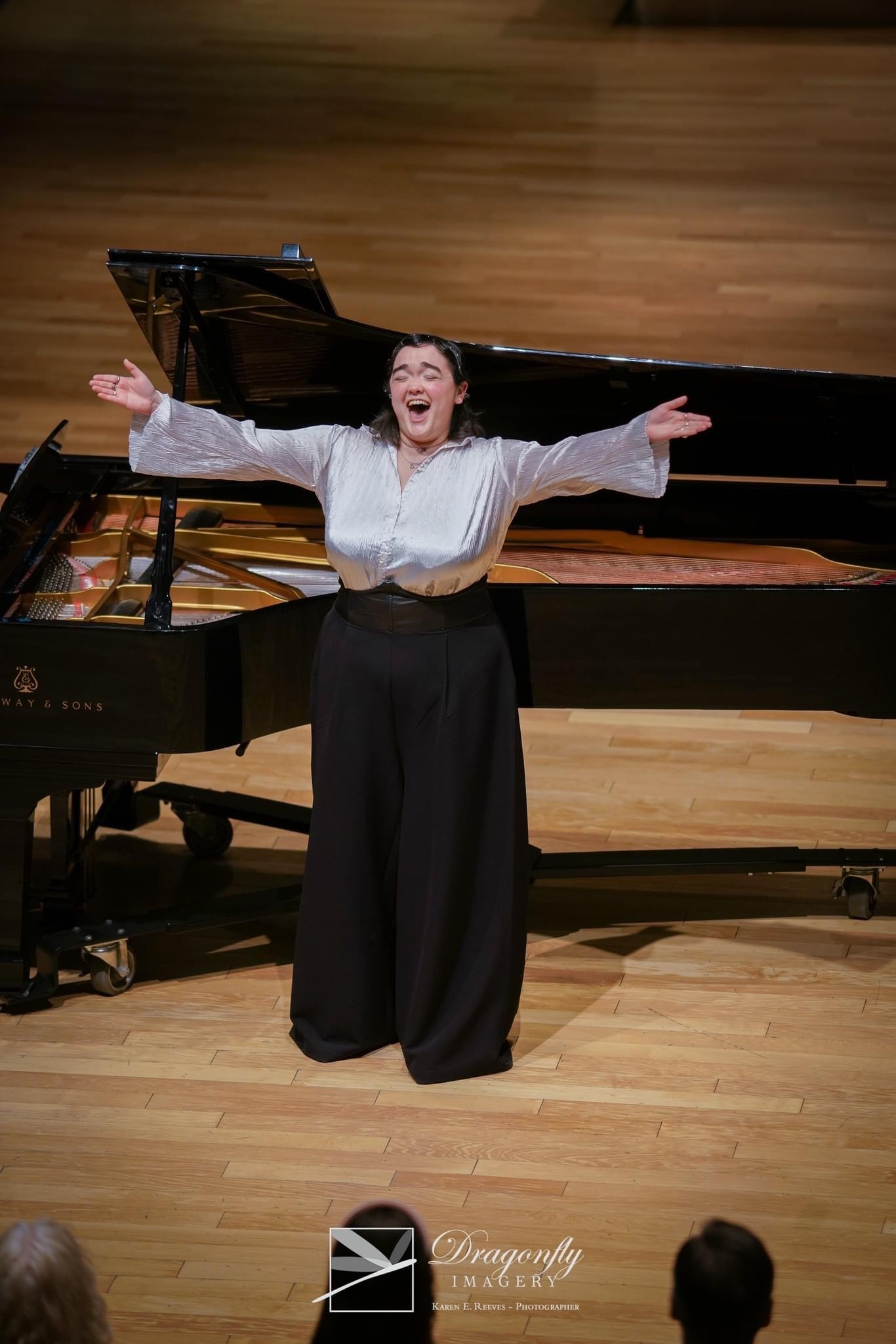We were lucky to catch up with Midori Marsh recently and have shared our conversation below.
Midori, looking forward to hearing all of your stories today. Can you talk to us about how you’ve thought about whether to sign with an agent or manager?
This time last year, I was coming to the end of my time as a young artist at the Canadian Opera Company. These Young Artist Programs (or YAPs) are house positions with opera companies where young singers, usually recent graduates of university programs, can have the chance to continue their studies, take on small roles with the company, and get paid. (YAY). I was getting a bit nervous to be coming to the end of my tenure there, as well as the end of perhaps the only steady paycheck a young artist can earn by performing, and I was really interested in being signed by an agency. A big part of a lot of singer’s early careers are competitions. One of the most prolific of these competitions is the Laffont Competition, run by the Metropolitan Opera. The rounds go like this: video application round, district round, regional round, and finally, semifinal and finals rounds, both of which are held at the Metropolitan Opera in New York City. I had submitted my video, forgotten to sign up for my district for so long that I received a prompting email from the Laffont team, and selected my district from the scant few that hadn’t been filled. As performing artists, we kind of need to learn to eat rejection for breakfast, but I had had a particularly rejection heavy year, especially from American competitions and programs. I waffled on whether or not asking for the time off from work, forking over the money for a plane ticket, and flying out to Nebraska of all places was worth it, when it seemed more likely than not that I would just have to swallow another rejection with my morning OJ. I waffled for so long that by the time I decided to go, the plane tickets were crazy expensive. I had the privilege to be able to borrow some money from my benevolent parents (thanks mom and dad), and flew out. I missed my connecting flight on the way there, booked for the next morning and basically had to rush to the venue and straight on stage. But I won in my district, and then in my region as well, and made it all the way to NYC to sing onstage at the Metropolitan Opera. I didn’t go on to the finals, which felt alright, all things considered. But, I was seen by the agency that would eventually sign me. It reminded me that in this business, anything can lead to anything, so just take the chance on yourself and try. Just don’t wait so long to buy the plane ticket.
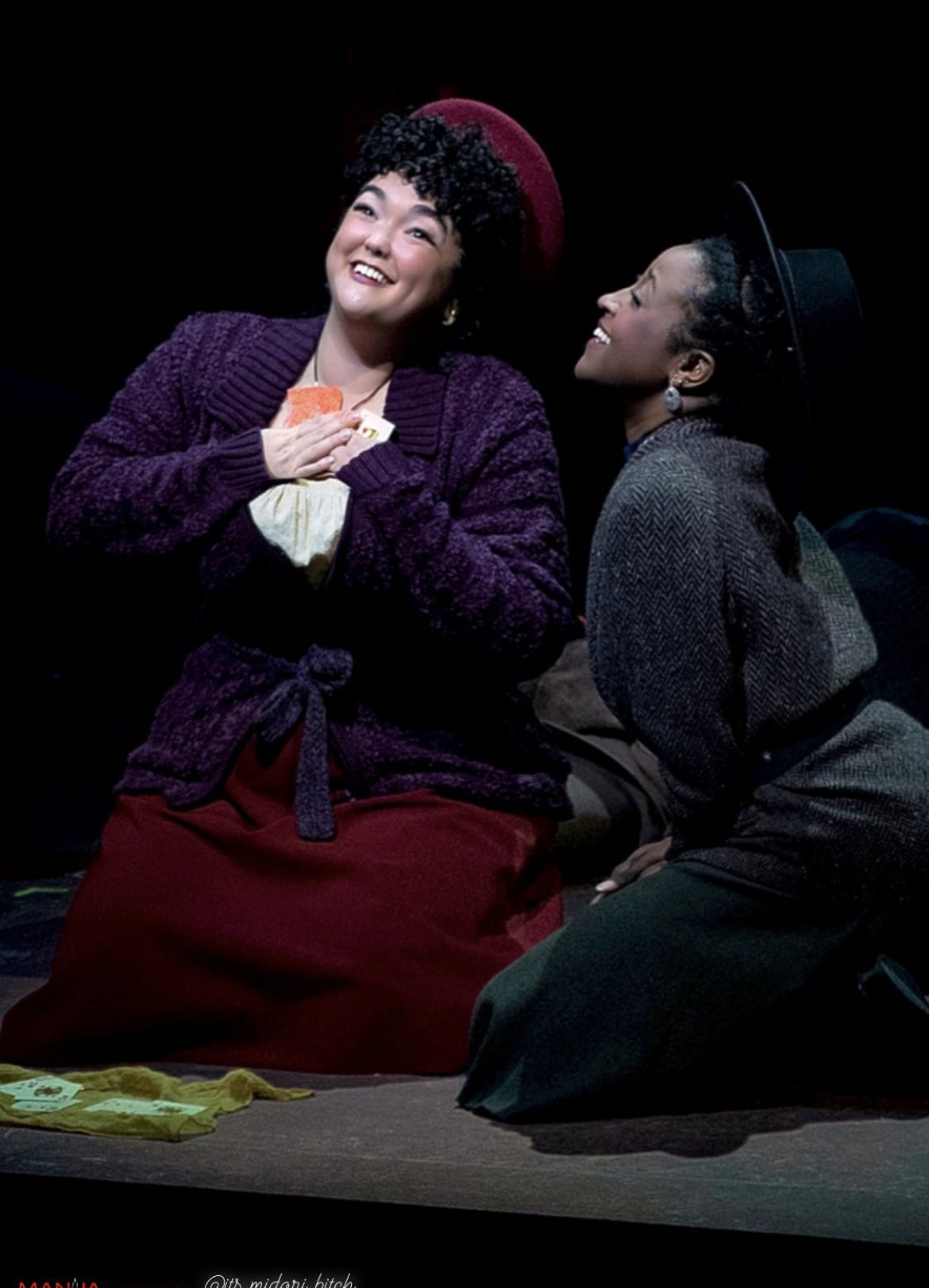
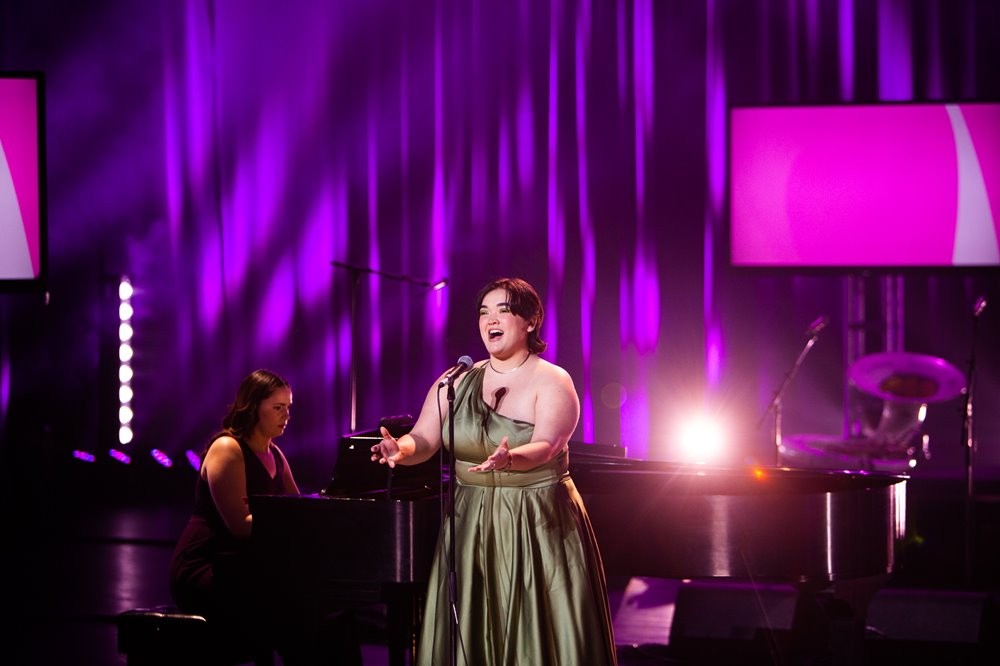
Awesome – so before we get into the rest of our questions, can you briefly introduce yourself to our readers.
Hey y’all! My name is Midori Marsh, and I’m a professional opera singer. I’m a singer who is, and I quote, “down for whatever.” I sing roles in traditional operas, indie productions, I do concert work, outreach shows, recitals, and more. I was interested in performing from a young age, and would do pretty much anything to be in front of other people, singing, dancing, acting, speaking, anything really. As you can imagine I was a very loud, willful child. I think I would have done anything that allowed me to be performing in front of others as a job, but I found myself in opera. It suited my voice, and I fell in love with it. I love how powerful the voice can become using classical singing techniques. It’s wonderful just how much exploration there is to do in this work. Exploration of the repertoire, the music, the text, and the voice itself. I got my BMus from Wilfred Laurier University, my MMus from the University of Toronto, and completed three years as a young artist with the Canadian Opera Company. I am now a freelance opera singer, signed with Stratagem Artists. I want to give as many people as possible the chance to experience opera, and the power of the un-amplified voice. I’m interested in diverse stories, singers and voices. I am a supporter of access to the arts, creative spaces and artistic experiences. I love new opera and compositions, I love the classics, I love putting a show together, I love connecting to an audience, I love community music making, I love getting to do what I do. I love my reputation as a singer who is “down for whatever”! Opera isn’t just one thing, and I hope that I can spend my career showing people just how many different things it can be.
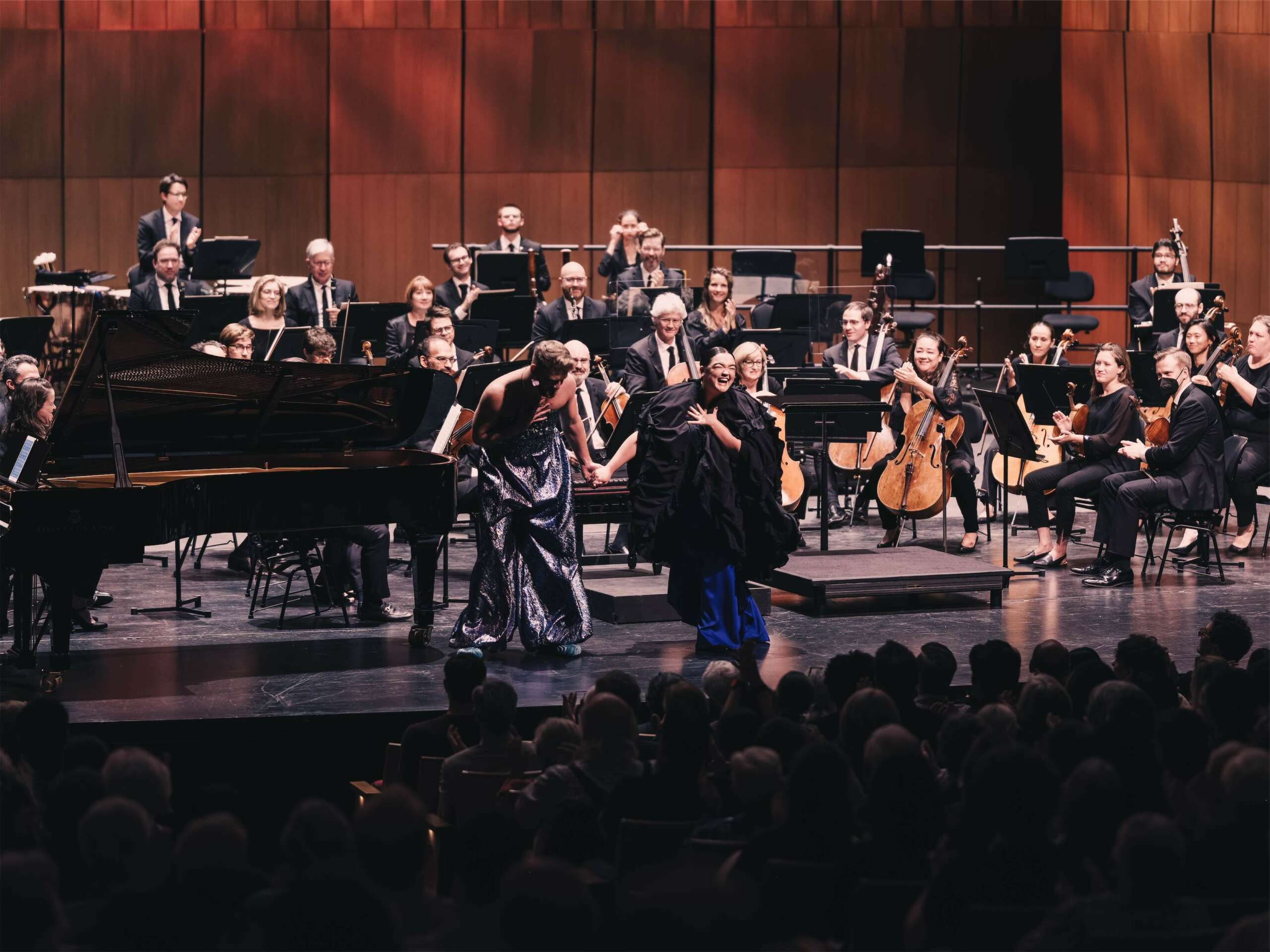
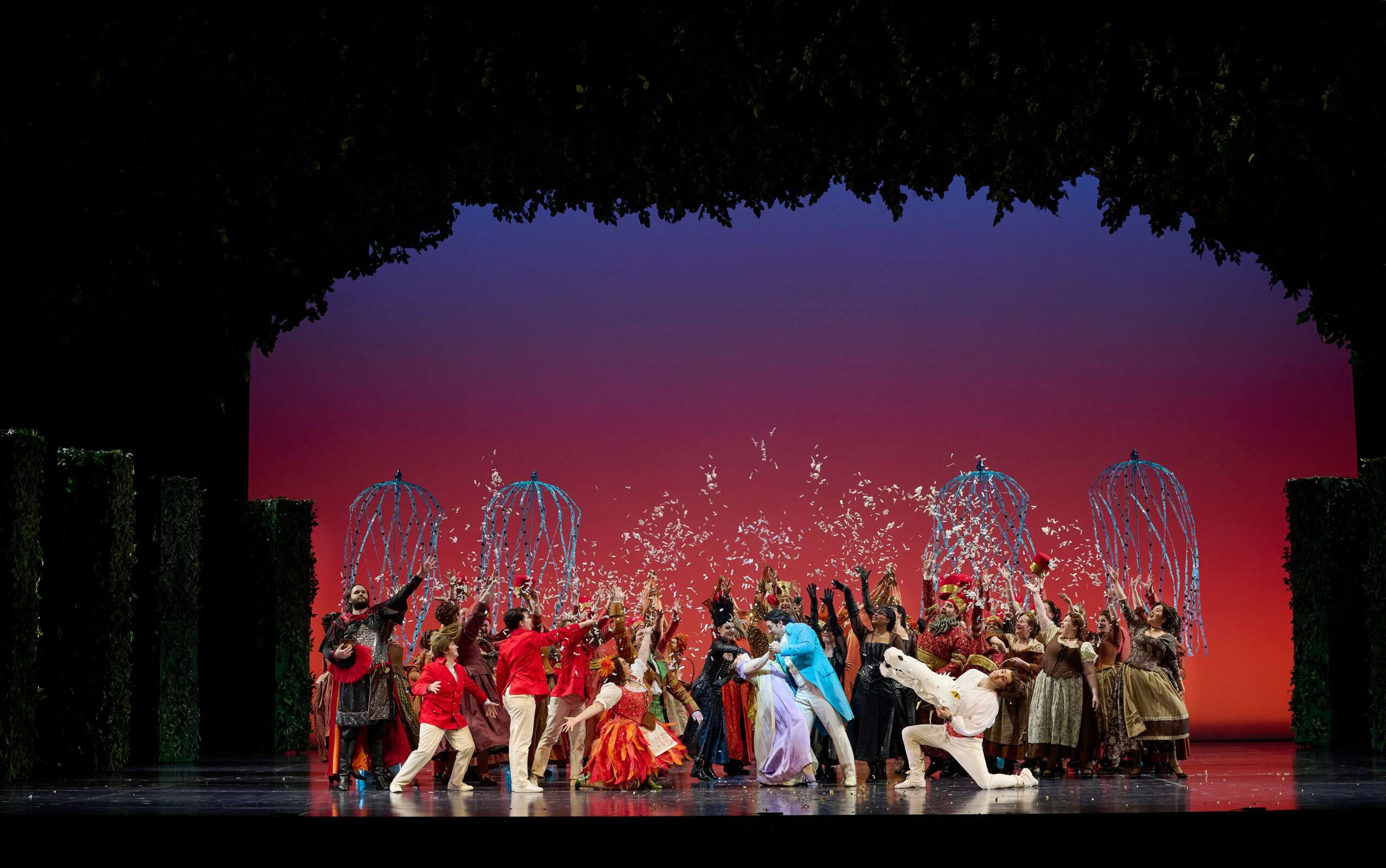
In your view, what can society to do to best support artists, creatives and a thriving creative ecosystem?
If I can get on my soapbox for a second…I think this is really a question of doing some serious societal restructuring! I can really only speak for opera here, but we have been operating on the same financial model for about four centuries. We, and other arts industries, rely a lot on government support and individual philanthropy. When individuals lose interest in donating, when governments stop prioritizing the arts, things get harder for artists. The arts dwindle. Music and visual arts programs get cut from schools. How can we change this? I think it’s a question of access. Who has access to pursuing the arts as a career? Who has access to enjoying the arts, particularly things like live performance which often have a higher price point? Arts have become a luxury. When things like food and rent feel out of reach, supporting local artists or finding personal artistic fulfillment can feel superfluous. When people are exhausted from working two jobs and still not having enough to make rent, they have no time or energy to create. But we know the arts are a necessity. They feed the soul, they express the feelings of the unheard. Things like universal basic income, paid sick leave and free healthcare give people the breathing room they need to create. Giving people grace when they make mistakes. Things can feel quite do or die when you’re trying to make a living as an artist, but our great composers and artists and singers and painters made so many mistakes and were able to grow and learn from them. Fighting for the rights and dignity of our neighbors and community, supporting people as people, not just artists, giving resources to marginalized groups who have so many stories to tell, and opening up access to historically inaccessible spaces like classical music, are a few ways to create a thriving arts ecosystem!
We often hear about learning lessons – but just as important is unlearning lessons. Have you ever had to unlearn a lesson?
I think as a natural performer, or just someone who loves very much to perform, something that I had to unlearn was my aversion to technical practice and improvement. I think when the more exciting aspects of the performing arts are what draw you in, technique can feel so boring and tedious. It can feel like technical learning is what gets in the way of being able to perform. I didn’t like practicing, I just wanted to do. Cart ahead of the horse etc etc. What I’ve learned, in classical music at least, is that “technique” or other “boring things” like language work, translation work, breath and vowel work, ARE performance. These are the things that, when secured, allow you to deliver your most effective and unfettered work. They allow you to get out of your own way, and connect best with an audience. Not everyone will have a regimented or daily practice schedule, and that’s okay! Find what works for you, but really try to discover the beauty and excitement in technical work, it will be so so helpful!
Contact Info:
- Instagram: @its_midori_marsh
Image Credits
Karen E Reeves, Dragonfly Imagery Manna Pavkov Michael Cooper Curtis Perry


